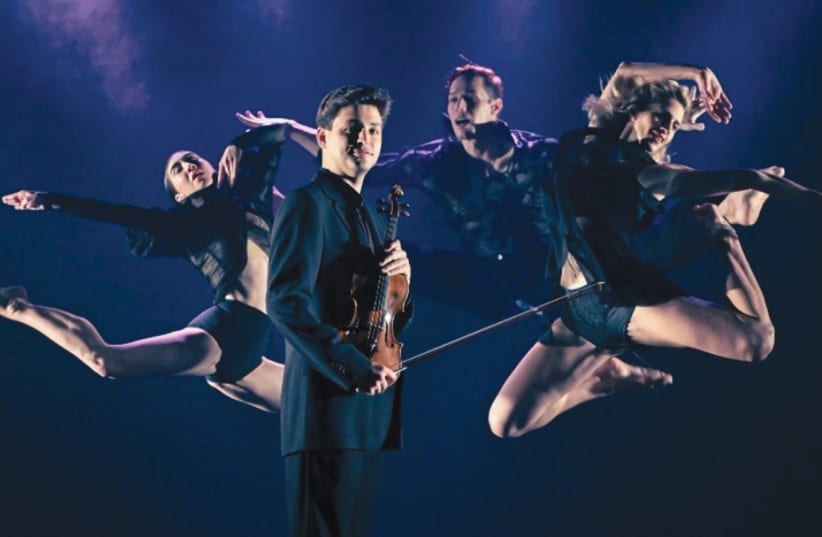Galili used that time to study NLP, Co-Active Coaching and get a motorcycle license.
And then, just as the vaccine was rolled out and theaters began to reopen, Galili received a phone call from the general director of the Israeli Opera, Zach Granit, asking if he would be interested in creating a piece set to a live arrangement of Vivaldi’s The Four Seasons.
Galili immediately saw the irony in this opportunity.
Seated in the conductor’s room in the Israeli Opera’s compound in central Tel Aviv, Galili recalled the thought process that accompanied his first steps into the production.
Galili is an internationally celebrated choreographer. He spent the lion’s share of his choreographic career in the Netherlands, where he initiated no less than five professional dance companies. His works have been seen the world over many times. Several years ago, Galili returned to Israel and has been working on a project basis since.
“Zach called and asked if I would step into this adventure,” he said. “I was puzzled at first. On one hand, I could do nothing. And on the other, there was this ocean of possibilities opening up, an ocean of creativity.”
Galili admitted that The Four Seasons is not a composition he ever considered choreographing to. “I would happily go to a concert of it, but it was not where my interest or curiosity led me before.”
But having spent a good chunk of his lockdown days considering the insignificance of seasons, Galili took the chance to look not at the seasons themselves but at the negative space between and around them. “If there are no seasons, what would the fifth season be? I think it would be looking back at what was. In corona, we didn’t look forward at all, only back.”
Four Seasons, which will premiere toward the end of the month, is not divided into four parts, but, rather, is “one blurred journey,” explained Galili.
The music will be played live, with moments of interaction between the 10 dancers and the musicians, specifically, by internationally renowned violinist Asi Matathias.
“Ninety-five percent of the music is on his shoulders,” said Galili. “He is constantly playing, and he is exceptional.”
The cast of dancers, which came together in record time, is composed of five men and five women. “Our time was very short. First, I had to bring the dancers from nothing to full speed. These dancers had spent a year doing Zoom classes in their living rooms, and suddenly were back to full on dancing. I chose people who are not similar to one another and then tried to find what would bring them together.”
The cast spans a wide range of ages, backgrounds and heights.
“There’s one very tall man (Hillel Perlman) next to a very tiny woman (Shani Katzman),” said Galili.
Three of the dancers – Katzman, Noa Cohen and Joseph Aitken – are parents of multiple children, while the younger dancers, such as Gili Geva and Noa Gronich, have only recently finished their training. And then there are the veteran performers Ido Gidron, Adi Shimshi, Shmuel Halfon and Tomer Golan, who may be recognizable from works by other choreographers and companies.
Together, the dancers bring Galili’s somewhat dark and nihilistic interpretation of the future and the music to life in their bodies.
There are intricate group sections, solos and theatrical moments. It is most certainly not the classical staging of Vivaldi that we are used to seeing. This Four Seasons pushes the audience to consider what will happen if we lose the seasons altogether. And, in Galili’s eyes, not much good can come of that.
Four Seasons will run at the Israeli Opera on June 23-25. For more information, visit www.israel-opera.co.il
